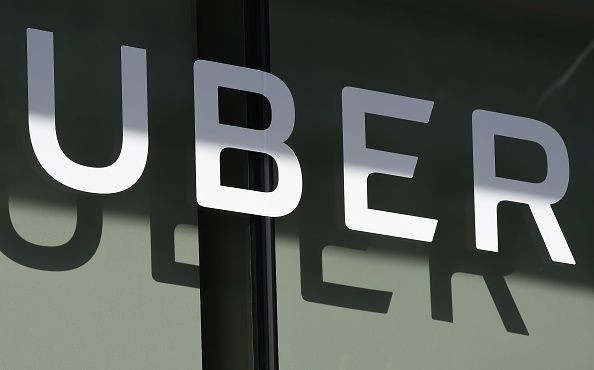Uber's Shopping Spree Continues

Uber (NYSE:UBER) whipped out its checkbook again last Friday. Just months after the ridesharing giant said it would acquire Careem, a popular ride-hailing service in the Middle East and North Africa, Uber made another acquisition.
The company said it would acquire a majority stake in Cornershop, a leading provider of online grocery in Mexico and Chile that has begun expanding to new markets. The deal comes just four months after Mexican regulators blocked Walmart's $225 million takeover of Cornershop, a sign that the Latin American online grocery operator is a hot commodity and that it was seeking a buyer, possibly because it's losing money.
The deal marks Uber's first entry into grocery delivery, not such a surprising move for a company that's rapidly expanded both its core Uber ridesharing business and the Uber Eats restaurant delivery around the world. CEO Dara Khosrowshahi explained the deal, saying, "Whether it's getting a ride, ordering food from your favorite restaurant, or soon, getting groceries delivered, we want Uber to be the operating system for your everyday life. We're excited to partner with the team at Cornershop to scale their vision, and look forward to working with them to bring grocery delivery to millions of consumers on the Uber platform."
Bring on the red ink
As stand-alone businesses, grocery and delivery independently both have low margins and are highly competitive. Grocery delivery, the combination of the two, has proven to be a thoroughly brutal business that has confounded global giants like Walmart and Amazon.com and sent many a start-up from the dot-com era into bankruptcy (RIP, Urban Fetch and Kozmo.com).
Unlike typical e-commerce orders, grocery delivery presents unique challenges like keeping items at key temperatures, storing and handling certain foods in the right way, and delivering in a timely fashion.
Those are among the reasons why Amazon acquired Whole Foods in 2017 after struggling for 10 years to build AmazonFresh, its own grocery delivery business. It's also why Instacart, the biggest pure-play online grocery company in the U.S., remains unprofitable, and why Shipt sold itself to Target for $550 million in 2017.
Though often unprofitable, grocery delivery is something of a siren song for retailers and tech companies as the U.S. grocery business is worth $800 billion and purportedly waiting to be disrupted by whoever solves the delivery riddle first.
What it means for Uber
It's becoming increasingly clear that Uber has no intention of curtailing its wide-ranging ambitions, despite the massive losses the company is seeing. Uber's acquisition of Careem for $3.1 billion in the run-up to its initial public offering this May was a big strategic move, and it also launched new businesses like Uber Copter, which ferries New Yorkers to JFK airport by air, and Uber Works, which connects temp workers with companies looking for help.
In the second quarter, Uber's adjusted EBITDA loss more than doubled to $656 million and topped $1.5 billion for the first half of the year. For 2019, the company expects an adjusted EBITDA loss of $3 billion to $3.2 billion, a staggering loss for any company.
For now, Uber has the luxury of a long leash thanks to Softbank, which plowed billions of dollars into the company in its pre-IPO days to fund its land-grab strategy, much in the same way it did with the now-troubled We Company, and the $8.1 billion it raised in its IPO. As of June 30, the company had $11.7 billion in cash on its balance sheet, but being well capitalized isn't an excuse to throw money at any company that vaguely fits in with the Uber umbrella of businesses. Through the first half of the year, it has lost more than $1.9 billion in free cash flow, showing that the massive IPO haul could be gone in just a few years if its bottom line doesn't improve. With growth slowing, Uber may need to cut costs and lay off employees in the very businesses it is now acquiring and launching. Notably, the company has already had two rounds of layoffs this year.
Khosrowshahi likes to compare Uber to Amazon, but Amazon never lost as much money as Uber is now, and the e-commerce giant has generally been judicious and strategic about acquisitions, buying companies that fill a key need, like the Kiva robots now in use in its warehouses, or a business that Amazon couldn't build itself, like Whole Foods with grocery. Uber, on the other hand, still seems like the growth-at-all-costs company it was under former CEO Travis Kalanick. Profitability looks like an afterthought.
Cornershop, which will continue to operate under its current leadership, is a perfectly fine business. After all, there's a reason Walmart sought to acquire it. But with Uber losing billions of dollars a year, the strategic need for the Cornershop acquisition or Uber's own foray into grocery delivery seems questionable at best. At the very least, taking over Cornershop is sure to delay the future breakeven point the company imagines it will reach one day.
This article originally appeared in the Motley Fool.
Jeremy Bowman has no position in any of the stocks mentioned. The Motley Fool recommends Uber Technologies. The Motley Fool has a disclosure policy.



















